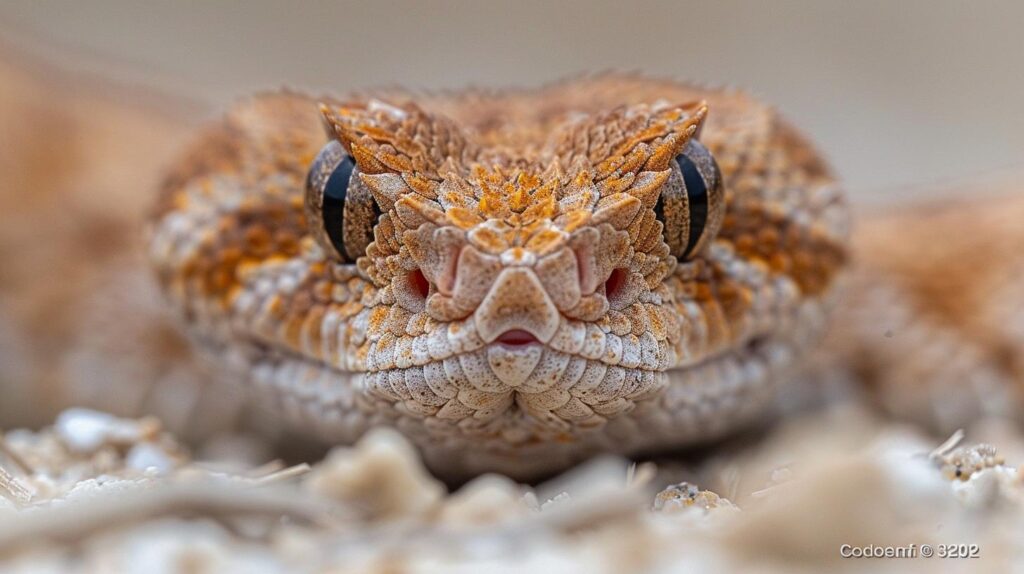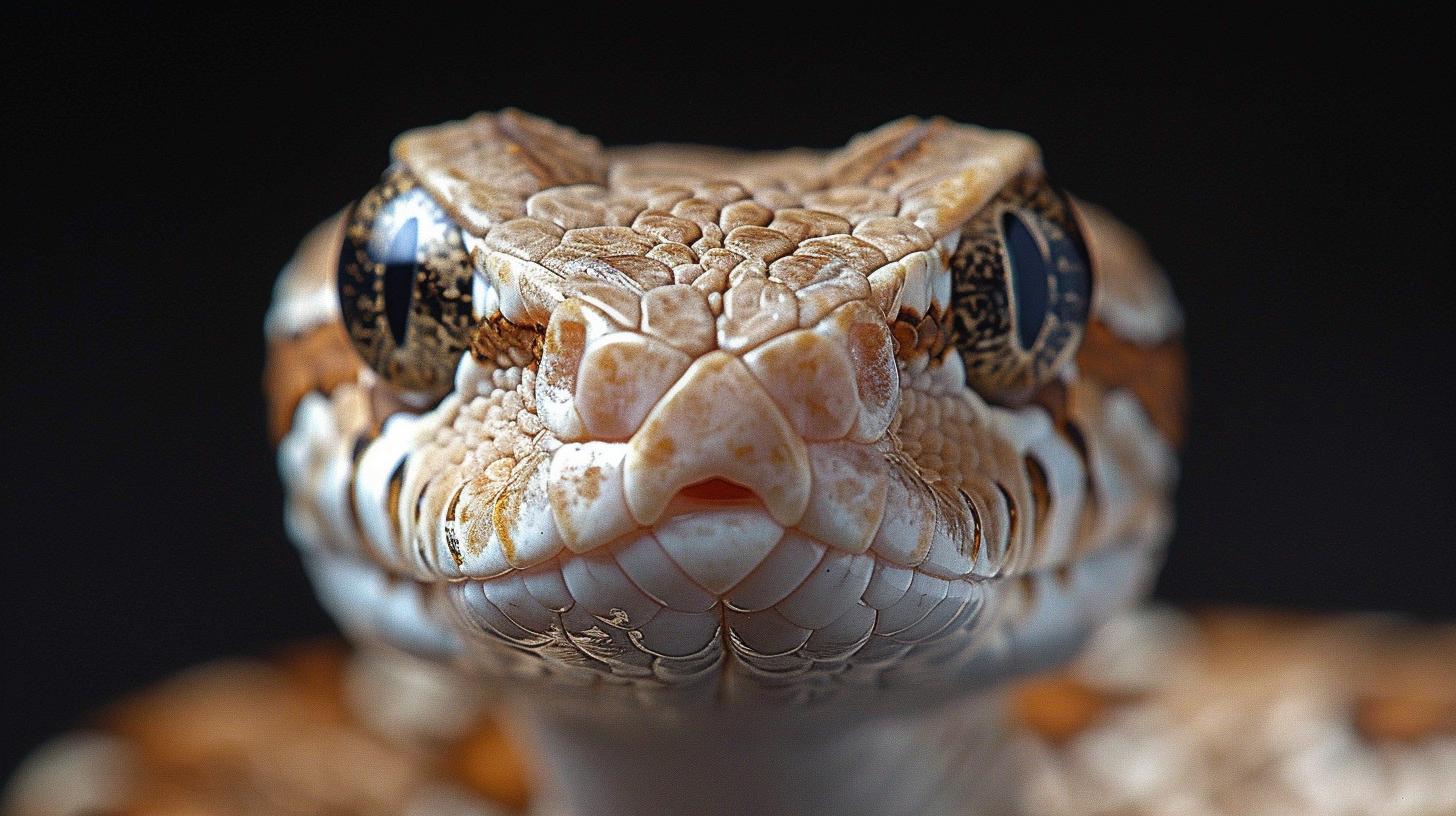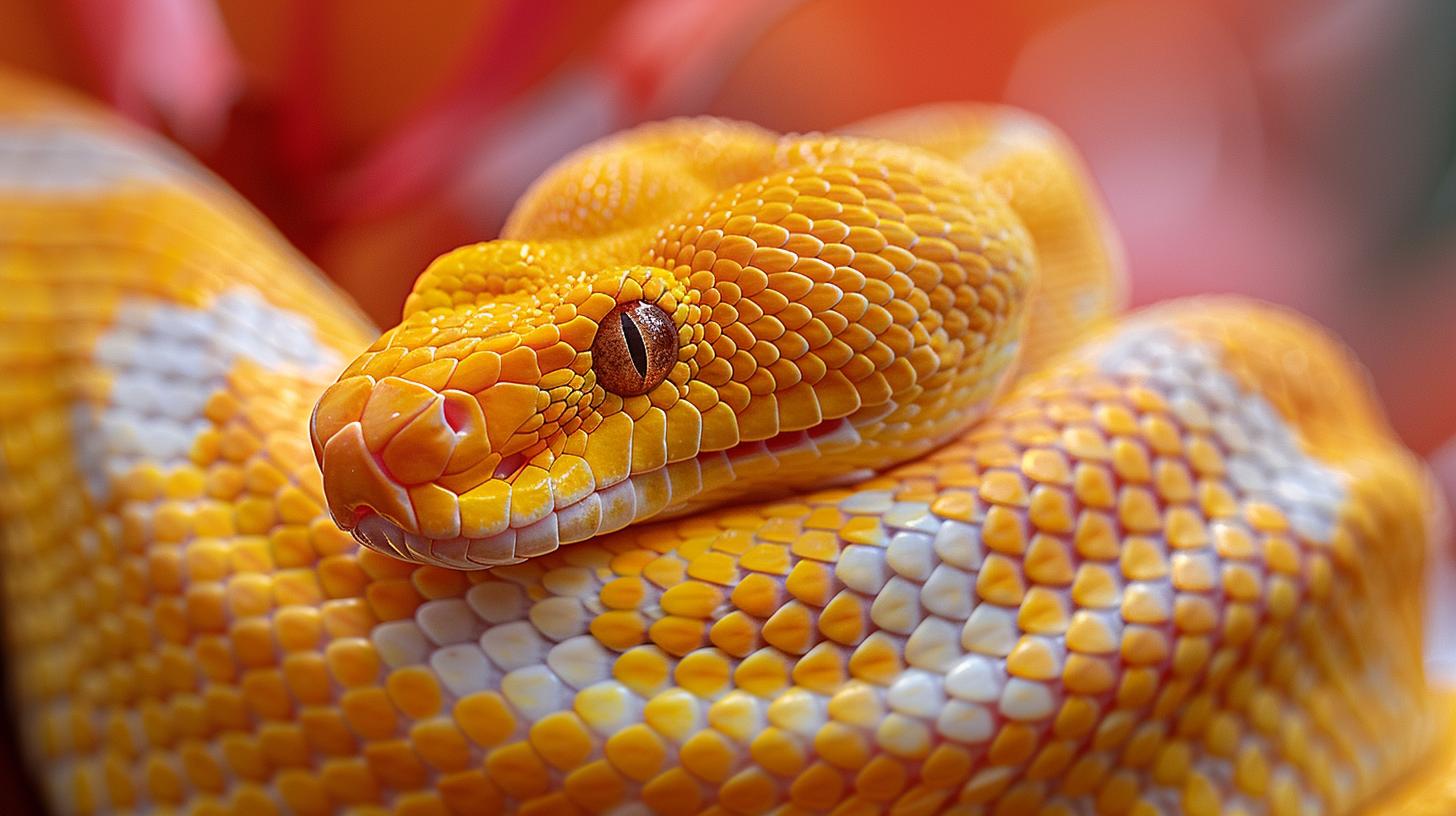Regular Vet Visits: Key to Your Snake's Health

- Why Regular Vet Visits Are Crucial for Your Snake's Well-Being
- Understanding Your Snake's Health Needs
- Preparing for the First Vet Visit
- What Happens During Snake Health Visits
- Interpreting Your Vet's Findings
- The Role of Nutrition and Environment in Your Snake's Health
- Building a Long-Term Health Plan for Your Snake
- Final Thoughts
Why Regular Vet Visits Are Crucial for Your Snake's Well-Being
Ensuring your slithery companion enjoys a long, happy life starts with routine snake health visits For new and experienced snake owners alike, understanding the pivotal role these check-ups play is essential.
Regular veterinary care goes beyond mere treatment-it's about prevention, early detection of health issues, and ultimately enhancing your snake's quality of life. This segment delves into why maintaining a schedule for vet visits should be at the top of every snake owner's priority list.
Snakes, while being fascinating pets with their unique behaviors and quirks, have specific health needs that demand attention. Unlike dogs or cats who might whimper or show obvious signs of distress, snakes often suffer in silence. Without regular veterinary check-ups, conditions that are easily treatable can escalate quickly into life-threatening issues.
From respiratory infections to digestive problems, the gamut of ailments that can afflict these reptiles is broad. Early detection through scheduled vet visits can greatly reduce the risk of such complications and ensure interventions are both timely and effective.
Understanding your snake's health requirements is another cornerstone of responsible pet ownership. Each species may have its own set of common challenges and predispositions to certain illnesses. By engaging in regular vet visits, you not only get expert insights into the unique needs of your pet but also equip yourself with knowledge on how to provide optimal care.
Secondly, preparing for that first vet visit is crucial; it sets the groundwork for a lasting wellness strategy for your reptile friend. Knowing what to expect during these appointments demystifies the process and helps you make the most out of each session.
As we explore what specifically occurs during snake health visits, from physical exams to diagnostic tests, it becomes clear how thorough veterinary assessments are indispensable in monitoring and maintaining your snake's well-being. It's not just about reactive measures but fostering an ongoing commitment to their health through proactive steps-emphasizing prevention over cure.
Moving forward, we'll also delve into deciphering your vet's findings and how they inform a comprehensive health plan tailored to your snake's needs-a plan that encompasses everything from nutrition to environmental enrichment.
Understanding Your Snake's Health Needs
Snakes, being unique and somewhat mysterious pets, have specialized health care requirements that need attention and understanding from their owners. Recognizing the specific needs of your slithering companion is fundamental in ensuring they remain healthy and thriving under your care.
This necessity brings to light why *snake health visits* are not merely beneficial but essential aspects of responsible snake ownership. During these visits, veterinarians with reptile expertise assess the overall well-being of your pet, focusing on diet, habitat conditions, behavior, and potential signs of illness.
Common ailments in snakes include respiratory infections, mites, nutritional deficiencies, and issues related to shedding. These health problems can quickly escalate if not addressed timely and can significantly affect the quality of life of your pet. Regular *snake health visits* serve as a preventive measure to catch such issues early on.
A veterinarian experienced in reptile medicine will also guide you on the best practices for feeding, enclosure setup, humidity levels, and temperature requirements specific to your snake's species. By tailoring care to these specific needs, you ensure a healthier life for your snake.
Preparing adequately for the initial vet visit involves knowing what information is vital for the vet to understand your snake's current health status better. This preparation ensures that the visit is both efficient and comprehensive. Essential data like your snake's feeding schedule, type of prey used (live versus frozen/thawed), frequency of shedding, any observed changes in behavior or appetite, along with any past medical records should be readily available during these check-ups.
| Health Aspect | Reasons for Attention |
|---|---|
| Feeding habits | To prevent nutritional deficiencies |
| Shedding process | To detect skin diseases or stress indicators |
| Breathing observation | To catch early signs of respiratory infections |
| Habitat condition | To ensure optimal living environment preventing stress-related issues |
Understanding that each visit to the vet forms part of a continuous effort to monitor and maintain your snake's health is key. The goal here is not just to react when something seems wrong but to act proactively; crafting a lifestyle for your pet that mirrors their natural habitat as closely as possible while also being vigilant about their physiological needs through regular monitoring by a professional veterinarian versed in reptile care.
Indeed, maintaining an open line of communication with your vet can make all the difference in preemptively addressing potential health concerns before they develop into severe problems.
Preparing for the First Vet Visit
Taking your snake to the veterinarian for the first time can be an anxious experience for both you and your pet. However, with appropriate preparation, you can ensure that the trip is beneficial for your snake's health and stress-free for you.
The initial veterinary visit sets the foundation for a long-term health plan, making it a critical step in safeguarding your reptile companion's well-being. By understanding what to expect and how to prepare, snake owners can make the most out of this important encounter.
It's essential to choose a vet with experience in reptile medicine, as snakes have specific health requirements different from other pets. Once you've scheduled an appointment, gathering information about your snake's behavioral patterns, diet, and any symptoms of distress will prove invaluable during the consultation. This preemptive measure not only assists your vet in conducting a thorough examination but also contributes to creating a more tailored health strategy for your snake.

What to Bring
When preparing for your appointment, assemble all necessary items that might help your veterinarian better understand your snake's condition. Essential items include a detailed record of feeding habits, shedding frequency, and any unusual behaviors observed. If possible, bringing a fresh stool sample can aid in diagnosing potential parasites or digestive issues. Additionally, housing your snake in a secure carrier designed for reptiles ensures their safety and reduces stress during transportation.
Transportation Tips
Transporting your snake safely to the vet involves more than just placing them in a container. Ensuring the carrier is escape-proof is paramount since snakes are experts at finding small gaps through which they can slip away.
Regulating the temperature within the carrier is also crucial; adding heating pads or blankets may be necessary depending on weather conditions to keep your pet comfortable during transit. By attending carefully to these details, you not only promote snake health visits but also demonstrate responsible pet ownership.
Understanding ahead of time what typically happens during snake health visits allows owners to ask pertinent questions and actively participate in their pet's health care process. Veterinarians appreciate when owners come prepared with observations and records as it facilitates a more efficient and effective examination.
Remember that this first visit establishes baseline data against which future assessments will be compared - make it count by being well-prepared and proactive about learning how best to care for your unique pet.
What Happens During Snake Health Visits
Visiting the vet is an integral part of responsible snake ownership. These visits not only ensure that your serpent companion remains healthy but also provide an opportunity for early detection and treatment of potential health issues.
However, many snake owners, especially new ones, might wonder what exactly goes on during these check-ups. By understanding the processes involved in snake health visits, owners can better prepare themselves and their pets for these crucial appointments, ensuring they are both stress-free and productive.
The consultations are comprehensive examinations of the snake's physical condition as well as its living environment. They often begin with a detailed discussion between the vet and the snake owner regarding the reptile's diet, habitat, behavior, and any symptoms or concerns that may have prompted the visit. This initial conversation is paramount in guiding the vet's examination process and in gathering critical information about the snake's wellness routine.
Physical Examinations and Diagnostic Testing
During snake health visits, veterinarians conduct thorough physical examinations which include checking the skin for mites or signs of shedding issues, assessing body condition to ensure no signs of malnourishment or obesity, examining eyes for clarity, nostrils for any blockage, mouth for any signs of infection such as stomatitis (mouth rot), and vent area for cleanliness and signs of parasites. The vet may also palpate along the body to check for any internal abnormalities or tumors.
In addition to a hands-on examination, diagnostic tests like fecal exams to check for internal parasites or bloodwork to assess overall health may be recommended based on initial findings or ongoing concerns. For certain conditions or when more detailed information is needed, advanced imaging techniques like X-rays or ultrasounds could be performed. These diagnostic tools are invaluable in providing a complete picture of your serpent's health status.
Advice on Care and Preventive Measures
Post-examination discussions focus heavily on preventive care tailored specifically to your snake's needs. Vets offer advice on nutrition modifications if necessary, habitat adjustments to meet your pet's specific environmental requirements better, and tips on handling common health issues like respiratory infections or scale rot before they become serious problems. Preventative measures might include regular deworming schedules or specific vaccines where applicable.
Understanding what occurs during these visits underscores their importance not merely as a reactionary measure to illness but as a proactive stance towards maintaining optimal health in snakes. Through a combination of experienced observation by skilled veterinarians accompanied by advanced diagnostic procedures when necessary, snake health visits serve as critical touchpoints in ensuring your pet leads a long, healthy life under your care.
Interpreting Your Vet's Findings
When you visit a veterinarian for snake health visits, understanding the feedback and recommendations you receive is vital. A thorough discussion with your vet not only illuminates your snake's current well-being but also provides a roadmap for future care. It is during these conversations that the significance of their findings comes to light, both in terms of immediate actions required and long-term care strategies.
Firstly, it is beneficial to pay close attention to any diagnoses or concerns raised by the vet. Common issues like respiratory infections, parasitic infestations, or nutritional deficiencies can severely impact your snake's health if left unaddressed. By seeking clarification on any technical terms or medical jargon, you ensure that you fully grasp both the nature of the problem and the proposed solution.
Additionally, don't hesitate to ask for specific examples of how suggested treatments have worked for other reptiles in similar situations. This can help solidify your understanding and confidence in the treatment plan.
During snake health visits, veterinarians typically recommend next steps tailored to your pet's needs. This might include changes to its diet, habitat adjustments for better temperature or humidity control, or even a prescribed medication regimen. To help remember these crucial details:
- Make notes during your visit or ask if you can record the conversation.
- Request written instructions for any treatments or changes recommended.
- Ask about potential side effects of prescribed medications and what signs to watch for indicating improvement or worsening conditions.
Understanding these recommendations fully equips you to make informed decisions about your snake's care at home. However, remember that implementing changes based on a single visit may not instantly resolve all issues. Continuous monitoring of your snake's behavior and physical condition is essential. Moreover, scheduling regular follow-up appointments allows both you and your vet to track progress and adjust treatments as necessary, ensuring your beloved reptile remains healthy and thriving over time.

As this section emphasizes making sense of veterinary advice received during routine check-ups, it naturally leads into discussions about practical applications of those insights in everyday care routines and long-term planning-essential components for maintaining optimum snake health that will be explored further as we proceed with our article.
The Role of Nutrition and Environment in Your Snake's Health
Nutrition and environment are foundational elements in maintaining your snake's health, impacting everything from its growth to its immune system. Understanding how these factors contribute to your snake's wellbeing is crucial, especially when combined with regular snake health visits. These visits allow veterinarians to assess your snake's condition in the context of its diet and habitat, making personalized recommendations for improvements.
A balanced diet tailored to the specific species of snake can prevent a multitude of health issues. For example, calcium deficiencies are common in snakes fed an improperly balanced diet, leading to bone health problems that could severely impact their quality of life.
During a snake health visit, a vet can identify signs of nutritional deficiencies or excesses by examining the snake's physical condition and conducting any necessary diagnostic tests. They might suggest dietary adjustments such as introducing variety or supplements to correct imbalances.
The environment plays an equally critical role in a snake's health. Proper temperature gradients, humidity levels, and enclosure cleanliness directly affect a reptile's risk for skin infections, respiratory illnesses, and stress-related diseases. Here are some key environmental factors veterinarians will discuss during snake health visits:
- Temperature: Incorrect heating can lead to digestive issues or lethargy.
- Humidity: Inadequate humidity could result in dysecdysis (difficulty shedding).
- Enclosure Size and Security: Small or insecure enclosures can cause stress and anxiety.
- Cleanliness: A dirty enclosure increases the risk of bacterial and fungal infections.
By integrating regular veterinary assessments with a thorough understanding and application of proper nutrition and habitat settings, owners can significantly influence their snakes' overall health positively. These check-ups provide invaluable opportunities to catch potential problems early on while offering guidance tailored specifically for each situation.
Moving forward into our next section on building a long-term health plan for your snake, we'll delve into how consistent monitoring over time is vital for spotting subtle changes that could indicate emerging health concerns-highlighting the importance of ongoing relationships with veterinary professionals knowledgeable about reptilian care.
Building a Long-Term Health Plan for Your Snake
Developing a long-term health strategy for your snake is fundamental in guaranteeing its well-being and longevity. This approach not only encompasses scheduled veterinary check-ups but also involves continuous monitoring and necessary adjustments to its care regimen based on professional advice. The cornerstone of this proactive strategy lies in understanding that a snake's health requirements can evolve over time, necessitating an adaptable and informed approach to their care.
At the heart of a robust long-term health plan is the commitment to regular snake health visits. These appointments provide an invaluable opportunity for early detection of potential health issues, allowing for timely intervention before more serious problems arise.
Moreover, these visits are critical in maintaining an open and ongoing dialogue with your vet, enabling you to stay abreast of the latest advances in reptile healthcare and how they can benefit your pet. Regular interactions with a veterinary professional dedicated to herpetology not only enrich your knowledge but also empower you as a caregiver to make informed decisions about your snake's health.
Incorporating feedback from veterinary professionals into your snake's care regimen is pivotal. After each visit, implementing the vet's recommendations on nutrition, habitat conditions, and general wellness practices plays a direct role in preventing common ailments that afflict snakes.
This might include dietary adjustments to meet nutritional needs, modifications to housing for optimal temperature and humidity levels, or even behavioral interventions to encourage natural activity patterns. By viewing each vet visit as an opportunity for learning and improvement, snake owners can ensure their pets enjoy a high quality of life through tailored care that addresses their unique needs at every stage of life.
Final Thoughts
As we reach the end of our comprehensive journey through understanding the essentiality of regular vet visits for your snake's health, it becomes clear how paramount these check-ups are to preventing and addressing health issues that may arise. Delving into the intricacies of snake wellness, from their unique health needs to the importance of a tailored environment and nutrition plan, has underscored the irreplaceable value of expert veterinary care.
Ensuring your reptilian companion receives consistent evaluations not only bolsters their quality of life but safeguards their vitality, underlying the significance of snake health visits in maintaining their overall well-being.
Throughout this article, we've navigated the crucial steps in preparing for your inaugural vet visit, what to anticipate during the examination process, and how to effectively interpret and act on your veterinarian's advice. This pathway culminates in a holistic approach encompassing preventive measures, precise nutritional and environmental adjustments as directed by your vet, and the formation of a strategic long-term health plan.
By engaging with these practices diligently, pet owners can forge a robust foundation for their snakes' health, ensuring these captivating creatures enjoy a long and thriving life.
We invite you to delve further into our site where an abundance of articles awaits, offering insights into not only reptilian care but also a wide spectrum of topics designed to support you in nurturing an enriched life for your pets. Whether you're seeking guidance on another aspect of snake care or curious about broader pet wellness strategies, our rich content library is primed to serve as your go-to resource.
So why wait? Explore further and discover how you can elevate your pet care knowledge today.
Leave a Reply
You must be logged in to post a comment.